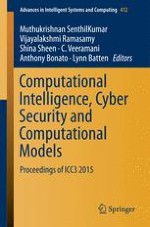2016 | OriginalPaper | Chapter
Performance Evaluation of Sentiment Classification Using Query Strategies in a Pool Based Active Learning Scenario
Authors : K. Lakshmi Devi, P. Subathra, P. N. Kumar
Published in: Computational Intelligence, Cyber Security and Computational Models
Publisher: Springer Singapore
Activate our intelligent search to find suitable subject content or patents.
Select sections of text to find matching patents with Artificial Intelligence. powered by
Select sections of text to find additional relevant content using AI-assisted search. powered by
